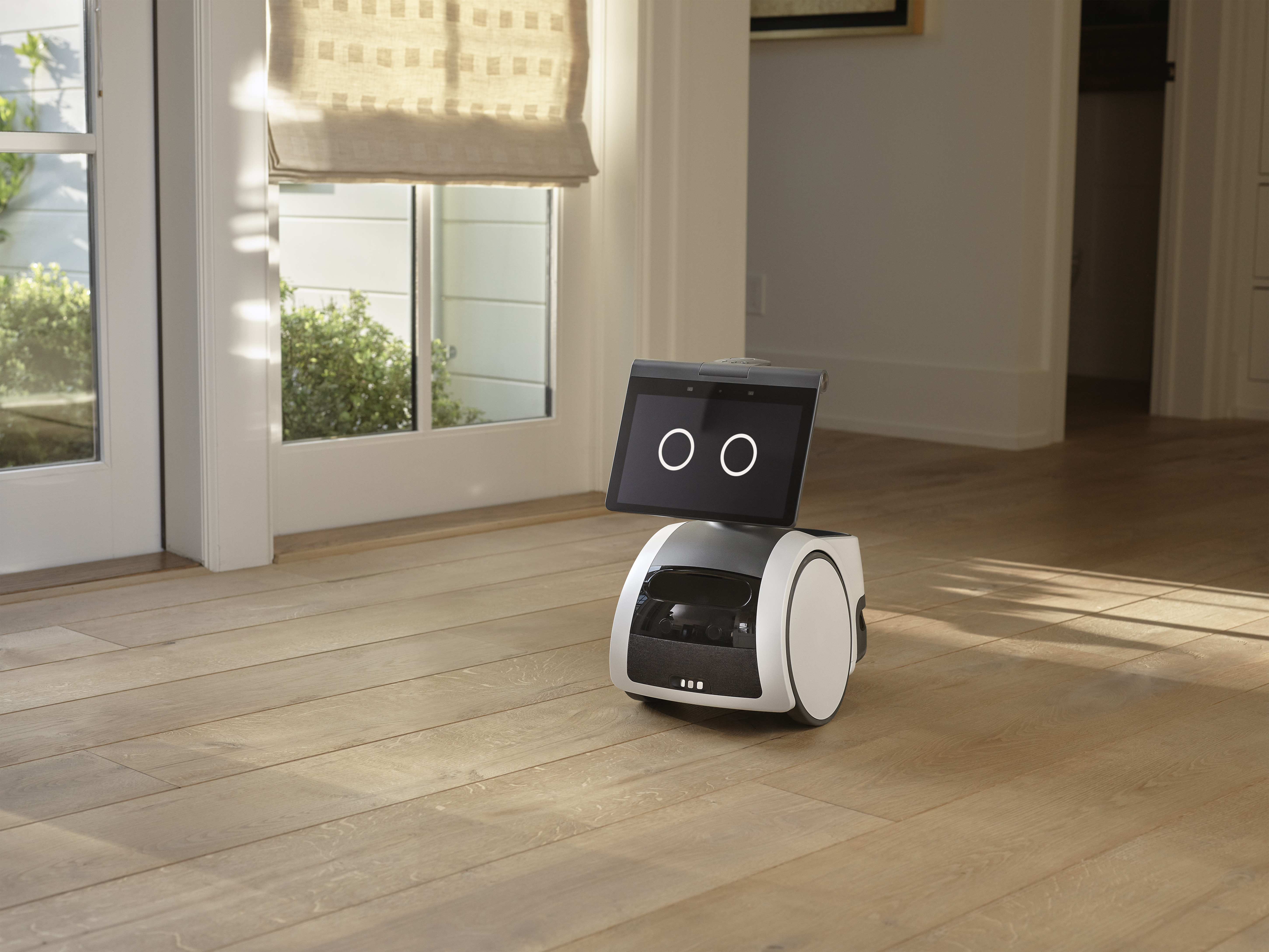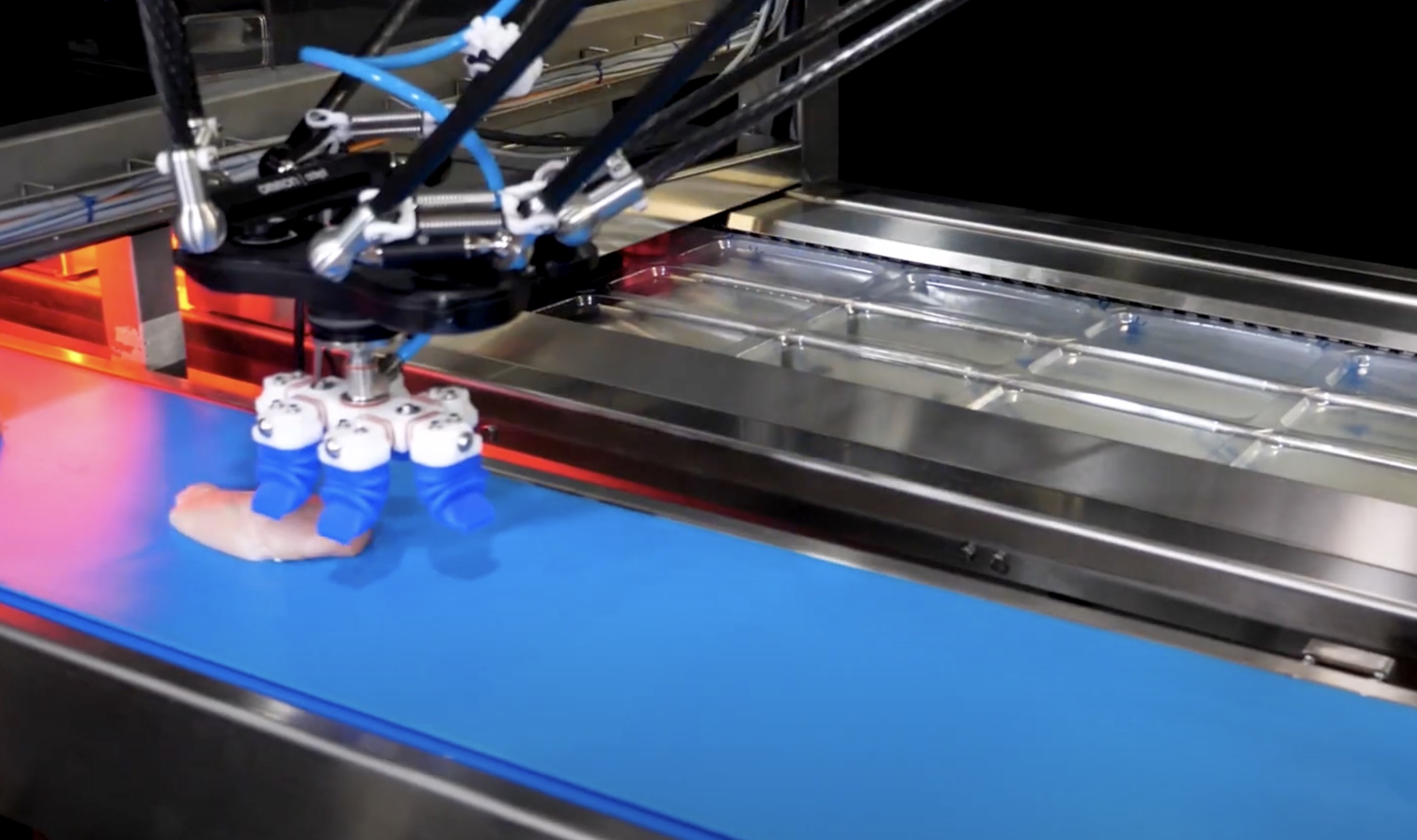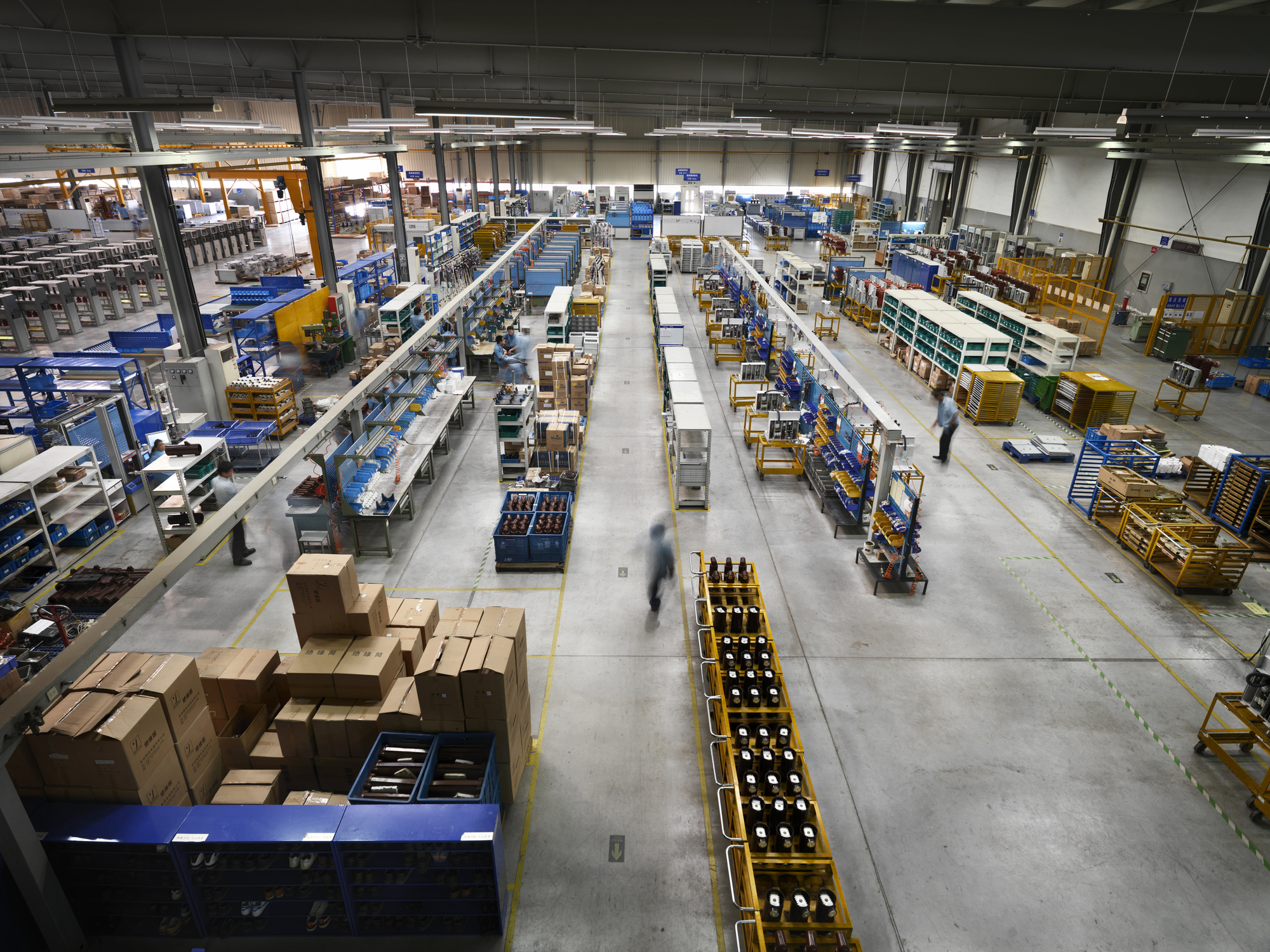My infant grandson was hospitalized for RSV. It’s not something to take lightly.
For three days, my 1-year-old grandson was treated for respiratory syncytial virus (RSV) in the emergency department of a large children’s hospital.
Al Roker returns home from hospital, Dylan Dreyer fills in at Macy’s Thanksgiving Day Parade
Meteorologist Dylan Dreyer is standing in for colleague Al Roker at the 96th annual Macy’s Thanksgiving Day Parade in New York City Thursday.
Qatar 2022: Why has no African team ever reached a World Cup semifinal?
No African team has ever made it to the semifinal of a World Cup. Four former African internationals tell DW why they think that is and explain what needs to be done to make a continent’s dream come true.
Twitter must come clean on censoring Post’s Hunter Biden laptop story: Musk
Elon Musk has insisted that full disclosure on Twitter’s decision to censor The Post’s exclusive story about Hunter Biden’s infamous laptop is “necessary” in order to restore public trust in the social media giant.
German unions urge Amazon workers to strike on Black Friday
Workers in 10 of Amazon’s 20 warehouses and shipping centers in Germany will stage a walkout on Black Friday, the German trade union Verdi has announced.
NFL readers Q&A: How did Rams blow it on line? Is Chargers’ Brandon Staley on thin ice?
NFL readers Q&A: Wasn’t Rams line already bad before all the injuries? Could head coach Brandon Staley be on way out if Chargers don’t make NFL playoffs again?
https://www.latimes.com/sports/story/2022-11-24/nfl-readers-questions-rams-chargers
Pacific Islands fight for existence before rising sea levels swallow them up
Although they contribute less than 0.03% of the world’s total carbon emissions, Pacific Islands are at the front line of the climate crisis. Entire countries could be submerged under water within the next two to three decades. How are these island states fighting for their survival?
Arrest warrant issued for friend of a North Carolina woman found dead in Mexico
• No tip is too small, police say as they investigate Idaho student killings and vow to increase presence after holiday break
https://www.cnn.com/2022/11/24/us/arrest-warrant-north-carolina-woman-dead-mexico/index.html
How To Talk To Family Members About Bitcoin This Thanksgiving
How To Talk To Family Members About Bitcoin This Thanksgiving
Authored by Joakim Book via BitcoinMagazine.com,
I don’t…
That’s it. That’s the article.
In all sincerity, that is the full message: Just don’t do it. It’s not worth it.
You’re not an excited teenager anymore, in desperate need of bragging credits or trying out your newfound wisdom. You’re not a preaching priestess with lost souls to save right before some imminent arrival of the day of reckoning. We have time.
Instead: just leave people alone. Seriously. They came to Thanksgiving dinner to relax and rejoice with family, laugh, tell stories and zone out for a day — not to be ambushed with what to them will sound like a deranged rant in some obscure topic they couldn’t care less about. Even if it’s the monetary system, which nobody understands anyway.
Get real.
If you’re not convinced of this Dale Carnegie-esque social approach, and you still naively think that your meager words in between bites can change anybody’s view on anything, here are some more serious reasons for why you don’t talk to friends and family about Bitcoin the protocol — but most certainly not bitcoin, the asset:
- Your family and friends don’t want to hear it. Move on.
- For op-sec reasons, you don’t want to draw unnecessary attention to the fact that you probably have a decent bitcoin stack. Hopefully, family and close friends should be safe enough to confide in, but people talk and that gossip can only hurt you.
- People find bitcoin interesting only when they’re ready to; everyone gets the price they deserve. Like Gigi says in “21 Lessons:”
“Bitcoin will be understood by you as soon as you are ready, and I also believe that the first fractions of a bitcoin will find you as soon as you are ready to receive them. In essence, everyone will get ₿itcoin at exactly the right time.”
It’s highly unlikely that your uncle or mother-in-law just happens to be at that stage, just when you’re about to sit down for dinner.
-
Unless you can claim youth, old age or extreme poverty, there are very few people who genuinely haven’t heard of bitcoin. That means your evangelizing wouldn’t be preaching to lost, ignorant souls ready to be saved but the tired, huddled and jaded masses who could care less about the discovery that will change their societies more than the internal combustion engine, internet and Big Government combined. Big deal.
-
What is the case, however, is that everyone in your prospective audience has already had a couple of touchpoints and rejected bitcoin for this or that standard FUD. It’s a scam; seems weird; it’s dead; let’s trust the central bankers, who have our best interest at heart. No amount of FUD busting changes that impression, because nobody holds uninformed and fringe convictions for rational reasons, reasons that can be flipped by your enthusiastic arguments in-between wiping off cranberry sauce and grabbing another turkey slice.
-
It really is bad form to talk about money — and bitcoin is the best money there is. Be classy.
Now, I’m not saying to never ever talk about Bitcoin. We love to talk Bitcoin — that’s why we go to meetups, join Twitter Spaces, write, code, run nodes, listen to podcasts, attend conferences. People there get something about this monetary rebellion and have opted in to be part of it. Your unsuspecting family members have not; ambushing them with the wonders of multisig, the magically fast Lightning transactions or how they too really need to get on this hype train, like, yesterday, is unlikely to go down well.
However, if in the post-dinner lull on the porch someone comes to you one-on-one, whisky in hand and of an inquisitive mind, that’s a very different story. That’s personal rather than public, and it’s without the time constraints that so usually trouble us. It involves clarifying questions or doubts for somebody who is both expressively curious about the topic and available for the talk. That’s rare — cherish it, and nurture it.
Last year I wrote something about the proper role of political conversations in social settings. Since November was also election month, it’s appropriate to cite here:
“Politics, I’m starting to believe, best belongs in the closet — rebranded and brought out for the specific occasion. Or perhaps the bedroom, with those you most trust, love, and respect. Not in public, not with strangers, not with friends, and most certainly not with other people in your community. Purge it from your being as much as you possibly could, and refuse to let political issues invade the areas of our lives that we cherish; politics and political disagreements don’t belong there, and our lives are too important to let them be ruled by (mostly contrived) political disagreements.”
If anything, those words seem more true today than they even did then. And I posit to you that the same applies for bitcoin.
Everyone has some sort of impression or opinion of bitcoin — and most of them are plain wrong. But there’s nothing people love more than a savior in white armor, riding in to dispel their errors about some thing they are freshly out of fucks for. Just like politics, nobody really cares.
Leave them alone. They will find bitcoin in their own time, just like all of us did.
Tyler Durden
Thu, 11/24/2022 – 14:30
https://www.zerohedge.com/crypto/how-talk-family-members-about-bitcoin-thanksgiving
Automating the income gap
This is going to be another one of those “let’s ask ourselves some difficult questions” newsletter introductions, so if you’re in the U.S., I certainly won’t blame you for not giving Actuator your full attention until after the holiday.
I generally approach these conversations through the same basic lens: a majority of technologies are neither inherently good nor bad. At the end of the day, it’s up to us as the arbiters of such trends to influence the resulting impact they have on this planet and its inhabitants.
Nor do I believe that most of the people who develop such technologies hope or expect them to have a net negative impact on the lives around them. I do, however, accept that — more often than not — the implementation of such technologies are beholden to broader macro trends and long-standing power structures.
Given the number of years I’ve been doing this, I suspect that many technologists are sick to death of that old talking point: the robots are coming for our jobs. And certainly, the economic trends of the last few years have afforded them a simple counterargument: There’s no one to fill the jobs they’re replacing.
As we barrel headlong into a holiday shopping season full of long hours and busy days, something to consider is what manner of impact automation has thus far had on the workforce. Some food for thought arrives in the form of this study coauthored by MIT’s Daron Acemoglu and Boston University’s Pascual Restrepo.
Acemoglu says, “These are controversial findings in the sense that they imply a much bigger effect for automation than anyone else has thought.”
We’re starting with a very clear premise here: in 21st-century America, the wealth gap is big and only getting bigger. The paper, “Tasks, Automation, and the Rise in U.S. Wage Inequality,” attempts to explore the correlation between the growing income gap and automation. The results are stark. MIT notes:
Ultimately, Acemoglu and Restrepo conclude that the effects have been profound. Since 1980, for instance, they estimate that automation has reduced the wages of men without a high school degree by 8.8 percent and women without a high school degree by 2.3 percent, adjusted for inflation.
Image Credits: xPACIFICA / Getty Images
I tend to agree with the premise that in the short-term, automation will displace jobs, and in the long-term it has the potential to create more, better jobs. As I’ve expressed on these pages numerous times, I feel strongly that it’s the role of government and corporations alike to accelerate the latter and make sure the existing workforce is able to make that transition. For those people who can’t make the jump to more technical roles for any number of reasons, these institutions need to ensure that human beings don’t simply fall through the cracks in the name of progress.
But I also have a fairly cynical view when it comes to the ultimate ends for these conversations. Ask yourself: What is the end game here? The simple answer is: Profit. If the best thing for a corporation’s bottom line is the automation of all blue-collar roles, do we have faith that companies won’t automate all workers out of a job out of the goodness of their heart?
Precedent is important to an extent. As someone pointed out to me once, the only job that has been fully automated out of existence since 1950 is the elevator operator. Can we continue to project that trend going forward, as technology grows exponentially more advanced? In my experience, such precedent can only take us so far, and if I’m being pragmatic to a fault about this future vision, it’s not entirely impossible to imagine a future where all manual labor is automated away.
Is that a good fate or a bad one? Your results will vary, depending on factors like your existing station in life and skill set. It also may come down to whether you’re capable of envisioning the transition from late-capitalism to post-scarcity. If automation leads to an abundance of product, is there a future in which such abundance doesn’t result in further wealth disparity? I’d certainly like to think so.
A little food for thought as you wait to come down from the tryptophan highs for long enough to take advantage of some early Black Friday deals.
Another reason so much of this is top of mind for me is the unavoidable reality of mass layoffs. Sorry to be such a downer during a holiday week (don’t say I didn’t warn you), but it seems doubtful we’ve seen the last of this. There’s no easy time to lose a job, but there’s something extra devastating about losing it in the lead-up to the holiday season — already a profoundly difficult time for many.
Thousands of people are facing that exact reality right now. I recently reported on widespread layoffs at Amazon that followed cuts at Meta, Salesforce and more. The Amazon reports of up to 10,000 job cuts followed our own reporting of “consolidation” within the company’s robotics wing.

Image Credits: Amazon
An interesting side note in all of that is an internal letter from Ken Washington, the head of Amazon’s consumer robotics division (entirely separate from the industrial wing, mind) surfaced by Business Insider. The former Ford executive notes:
We are committed to the future of consumer robots and, as Dave said, we will further prioritize what matters most to our customers and the business. Our vision remains intact that customers will want at least one robot in their home or business because they are invaluable home assistants, endearing companions, and trusted helpers that make every day better.
The “Dave” here is Dave Limp, who heads the consumer devices category, which includes products like Echo, Fire tablets and Kindle. That division is said to make up a considerable portion of the 10,000 or so jobs Amazon is reportedly cutting. The division also now houses the consumer robotics effort that includes Astro and (theoretically) iRobot, assuming newly emboldened federal regulators don’t end up shooting that deal down.
The initial report categorizes Washington’s letter as uncharacteristically straightforward with regards to job security (the company has yet to comment on the note). It’s understandable, though. After all, the company has trimmed some efforts requiring long runways in its Robotics division, so if I were on the Astro team under the broader devices umbrella, I’d likely be a bit wary myself. Amazon has, of course, been extremely bullish about both home robots generally and its position as a leader in that category.

Image Credits: Nuro
Meanwhile, earlier this week, autonomous delivery company Nuro confirmed that it’s laying off 300 people — or roughly 20% of its workforce. This follows job cuts for robotics companies Iron Ox and Berkshire Grey. In all of these cases, we’re talking about very well-funded startups. That makes these sorts of things extremely hard to square from the outside. In Nuro’s case, the company’s leadership takes responsibility for its own overhiring when things were looking brighter.
The company noted in a letter to its staff:
Each and every one of you have made important contributions to this company, and saying goodbye to talented Nurons is not a decision we have taken lightly. For those of you leaving Nuro, we are very sorry for this outcome — this is not the experience we wanted to create for you. We made this call and take full responsibility for today’s circumstances.
Here’s something I can tell you having been through the layoff wringer a couple of times myself (don’t go into publishing, kids): Everyone can tell you it’s not your fault. You can know deep in your bones that it’s not your fault. But it’s still extremely difficult not to blame yourself — not to second-guess and think about the one or two things you could have done to keep your job.
But here’s the fact: The economy sucks. If the macroenvironment is having this kind of impact on well-established corporations, newer and less established firms are far from safe. As I noted in my Boston writeup last week, even well-funded firms are being extremely cautious about hiring right now. Those who are nearing the end of their existing runway, meanwhile, are going to have to ask some extremely difficult questions. It’s just not a good time to be raising money, full stop.
For those reasons, it’s probably safe to say that we will see even more promising startups fall apart at the seams before this is all over. If you were counting on a raise to survive and no funding is forthcoming, your options are suddenly extremely limited. And as we’re all well aware here, hardware iteration in particular generally requires long runways. All of those VCs who promised to stick it out with their deep tech investments through thick and thin, this is when you put your money where your mouth is.

Image Credits: Soft Robotics
That’s not to say the well has completely dried up, of course. I’m hearing about some big rounds over the horizon. Meanwhile, established companies are continuing to raise. Things seem to be slightly easier for those firms that have already proven themselves in the world. Soft Robotics, who we’ve covered quite a bit over the years, just announced a $26 million Series C, fittingly led by Tyson Foods’ investment wing, Tyson Ventures.
“At Tyson, we are continually exploring new areas in automation that can enhance safety and increase the productivity of our team members,” Tyson Ventures’ Rahul Ray said in a release. “Soft Robotics’ revolutionary robotic technology, computer vision and AI platform have the potential to transform the food industry and will play a key role in any company’s automation journey.”
Why massage robots? Maybe the better question is why not massage robots? Wikipedia tells me that the electric massage chair has been kicking around Japan since before World War II (a site called Massage Chair Planet appears to back up this claim) — one could certainly make the argument that this life blood of Sharper Image and Brookstone are massage robots in their own right. And certainly the push to make massages more readily available without the potential for human exploitation is a solid enough goal.
I will hold off on any evaluation of Aescape’s efficacy (I’m not entirely convinced this isn’t a gimmick, if I’m being honest) until I have the opportunity to use one (I think I may have just volunteered myself), but Valor Siren Ventures and Valor Equity Partners appear convinced. The firms co-led a $30 million Series A for the New York–based firm. A number of others participated, including 5x NBA All-Star and Beach Boy nephew, Kevin Love.
Here’s founder and CEO Eric Litman:
Our team at Aescape is working to bring beautifully-designed, fully-automated, therapeutic massage and wellness experiences to market with a solution that combines innovative research, revolutionary technology, and a holistic approach to physical wellness and recovery. This funding means that our partners are not only investing in our shared vision and world-class team, but also in the future of the wellness industry overall. We’re grateful to our investors for believing in our dream, and we look forward to launching The Aescape Experience in 2023.”

Image Credits: MIT
A couple of cool research projects that deserve some attention this week. The first one comes from MIT’s Center for Bits and Atoms. The team is developing self-assembling robots that utilize small units called “voxels.” These modular pieces carry power and data and are capable of moving across a grid and connecting with themselves to form larger structures.
The team notes, in a paper published in “Nature”:
Our approach challenges the convention that larger constructions need larger machines to build them, and could be applied in areas that today either require substantial capital investments for fixed infrastructure or are altogether unfeasible.
A lot of folks — including the Defense Advanced Research Projects Agency (DARPA) — can’t wait to get their hands on this sort of technology. A fully autonomous version is currently still “years away,” per the team.

Image Credits: North Carolina State University
As to the issue of slow swimming soft robots, a team at North Carolina State University has developed a clever manta ray–inspired design capable of moving up to 3.74 body lengths per second. That marks a sizable increase over other systems that have difficulty moving one body length in that time.
“To date, swimming soft robots have not been able to swim faster than one body length per second, but marine animals — such as manta rays — are able to swim much faster, and much more efficiently,” the paper’s co-author, Jie Yin, says in a release. “We wanted to draw on the biomechanics of these animals to see if we could develop faster, more energy-efficient soft robots. The prototypes we’ve developed work exceptionally well.”

A drawing from Boston Dynamics’ suit. Image Credits: Boston Dynamics
And this week, a small update to the war between Boston Dynamics and Ghost Robotics. The latter has more than enough salt for an entire Thanksgiving dinner in its response to a patent lawsuit. A Ghost Robotics rep told TechCrunch:
Ghost Robotics’ success has not gone unnoticed by Boston Dynamics. Rather than compete on a level playing field, the company chose to file an obstructive and baseless lawsuit on November 11th in an attempt to halt the newcomer’s progress. Boston Dynamics is drawing on their considerably larger resources to litigate instead of innovate.
To get Actuator in your inbox, sign up here.

Image Credits: Bryce Durbin/TechCrunch
Automating the income gap by Brian Heater originally published on TechCrunch
https://techcrunch.com/2022/11/24/automating-the-income-gap/






